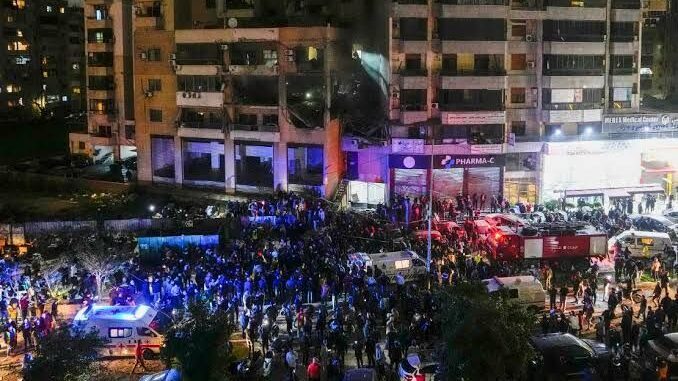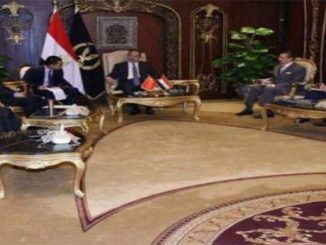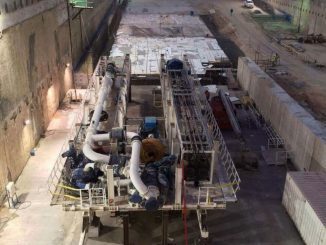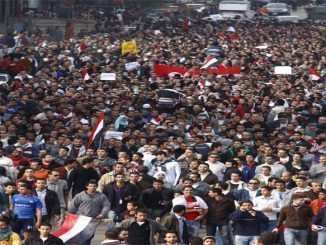
An Egyptian source says Cairo has informed Israel that it is freezing its involvement in the indirect negotiations following the assassination of Hamas’ second-in-command, Saleh al-Arouri.
A senior Hamas official said that Tuesday’s elimination of the deputy leader of Hamas, Saleh al-Arouri, does not allow for a dialogue on negotiations on an exchange deal and a ceasefire with Israel.
In a conversation with the pan-Arab Al-Araby Al-Jadeed newspaper, the Palestinian Arab source said that the mediators feel embarrassed following the crime that was committed after there had been a positive atmosphere in the indirect negotiations between the parties, who exchanged offers and responses to the offers.
Now, the source said, there is a desire to respond to the elimination in a similar manner and that the options are open in all arenas while at the same time there are talks between all the Palestinian Arab organizations on the appropriate response.
An Egyptian official told the newspaper that there is no alternative to the negotiation route to resolve the crisis in the Gaza Strip and that if Egypt ceases its involvement in this issue, the crisis may escalate in a way that exceeds the estimates of all parties.
The official added that Egypt informed Israel that in response to the assassination of Arouri, it was freezing its involvement in mediating between Israel and Hamas, and against this background an Israeli delegation, which included the person responsible for the captives and the missing, cut short its visit to Egypt, just one day after arriving in Cairo.
Hamas condemned Israel for the ‘cowardly assassination’ of its deputy leader in southern Beirut, while Hezbollah vowed revenge.
Israel killed senior Hamas official Saleh al-Arouri in a targeted attack in the Lebanese capital on Tuesday, heightening the risk of a wider conflict amid Israel’s devastating offensive on the besieged Gaza Strip.
Izzat al Rishq, a member of the Palestinian movement’s political bureau, said Arouri was killed in a “cowardly assassination” by Israel, and warned such attacks would “not succeed in breaking the will and steadfastness of our people, or undermining the continuation of their valiant resistance.”
“It proves once again the abject failure of this enemy to achieve any of its aggressive goals in the Gaza Strip,” he said.
Ismail Haniyeh, the head of Hamas’ political bureau, also slammed the killing and compared it with the assassination of other senior Hamas leaders, including the group’s founder, Sheikh Ahmed Yassin, in 2004.
“The assassination of the leader al-Arouri and his brothers by the occupation is a fully-fledged terrorist act, a violation of Lebanon’s sovereignty, and an expansion of its aggression,” Haniyeh said.
Lebanon’s state-run National News Agency said the blast in Beirut’s southern suburb of Dahiyeh was carried out by an Israeli drone. Footage shared on social media showed the burnt-out wreckage of several vehicles in southern Beirut, as crowds gathered nearby after the attack.
Dahiyeh, where the explosion took place, is a largely residential neighbourhood but also serves as a stronghold for the Lebanese armed movement Hezbollah.
In a statement late on Tuesday, Hezbollah said that the attack, which also killed two commanders from the al-Qassam Brigades, was a “serious assault on Lebanon” and that the group had “its finger on the trigger.”
“The criminal enemy which after ninety days of crime, killing and destruction was unable to subjugate Gaza is resorting to a policy of assassination,” Hezbollah said.
Lebanese Prime Minister Najib Mikati also condemned the explosion, calling it a “new Israeli crime”.
Hours before Arouri’s killing, Turkey detained 33 people who it alleged were spying on Palestinians on behalf of Israel’s Mossad intelligence agency.
Last month, Ankara warned Israel against plotting to kill Hamas members in Turkey, following reports of plans to target the group’s leaders overseas.
The killing sparked protests that engulfed the occupied West Bank on Tuesday, and protesters also thronged the streets of the Jordanian capital Amman.
So far, the Israeli army has refused to comment on Arouri’s assassination, but said its forces were “highly prepared for any scenario”.
Israeli officials have repeatedly vowed to attack Hamas leaders outside of the occupied Palestinian territories, including in Lebanon, Qatar and Turkey, following the 7 October attack on southern Israel.
In November, Israeli Prime Minister Benjamin Netanyahu said he had instructed Mossad, Israel’s intelligence service, to “assassinate all the leaders of Hamas wherever they are”.
In early December, a leaked recording revealed Ronen Bar, the head of Shin Bet, Israel’s internal security agency, telling Israeli parliamentarians that Hamas leaders would be killed “in Gaza, in the West Bank, in Lebanon, in Turkey, in Qatar, everywhere … It will take a few years, but we will be there in order to do it.”



